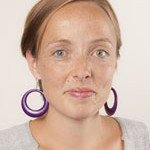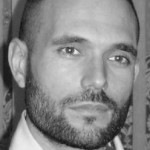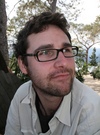In June 2012 the University of Bergen will organise a PhD conference on BSRS-related themes. The title of the conference is Transnational migration and global development.
Halvar A. Kjærre: “Politics and Mobilities”
Tarje I. Wanvik: “Migration and Social Inequalities”
Halvar A. Kjærre (Department of Social Anthropology, UiB) and Tarje I. Wanvik (Department of Geography, UiB) have recently been recruited to the IMER Bergen research unit as PhD candidates.
In this seminar they will present their PhD projects. After the presentation there will also be a presentation of IMERS new webpages.
Ida Tolgensbakk – Swedish migrants in Norwegian media and popular culture
In this seminar Ida Tolgensbakk will present some findings from her PhD research on young, Swedish labor migrants in Oslo. In everyday encounters in Norway, the young Swedes are identified as such primarily through linguistic characteristics, and not for instance skin color, phenotype, or dress. That is, they are audible rather than visible migrants. Tolgensbakk will discuss what kind of consequences this has on the lives of the young Swedes, as well as look into the related questions of how the young Swedes are presented in Norwegian media and popular culture.
Ida Tolgensbakk
Department of cultural studies and oriental languages, UiO. Ida Tolgensbakk has a master in folklore studies from 2005 (on national identity in the Faroe Islands). She worked three years at the Norwegian Institute of Local history, mainly focusing on migrant’s life stories. She is now studying young, Swedish labor migrants moving to Oslo. Her research is based on life story interviews, fieldwork on a Facebook group, and texts from popular culture and the media.
Read more here: http://www.hf.uio.no/ikos/english/people/aca/idatol/
Communicating Migration Seminar Series IMER Bergen spring and autumn 2014
The IMER seminar series for 2014 will cover how migration and ethnic relations are communicated in every-day encounters, in mass and social media, in politics and in teaching at the universities. Has the way people talk about migration and migrants in different social contexts changed over time, and in which ways has it changed? How does migration theory and research fit in with other topics and theories in the social sciences, and how do results from migration research inform public debate and policy development? Communicating migration will be discussed from various angles in our seminar series on international migration and ethnic relations during spring and autumn 2014. We welcome papers that touch upon this broad theme from different angles. Historical analyses of change over time in regard to politics and public debate, research foci and disciplinary concerns are specifically welcomed. The seminar series will end with a two-day conference in October/November 2014.
Closing conference PROVIR
“Exceptional welfare: Dilemmas in/of irregular migration”
How do states respond to the physical presence and needs of people it officially has excluded? To what extent do international human rights provide protection? How does migration control and welfare policy affect irregular migrants’ experiences and subjectivities?
Physically present, but legally excluded, irregular migrants’ present societies with particular dilemmas relating to both sovereignty and human suffering. European countries increasingly involve welfare services in migration control, either by restricting access, or by using welfare services to detect/expose irregular migrants. This raises important questions concerning not only how migrants’ legal status influences their capacity to access services, but also the practical and ethical implications for service providers. Furthermore, it challenges the extent to which human rights actually limit the exclusionary powers of states and as such whether human rights are viable outside the confines of citizenship.
Provision of Welfare to Irregular Migrants (PROVIR) will be organizing its closing conference at the University of Bergen, 19th – 21th of November 2014. As an interdisciplinary project, the PROVIR research group and its international partners have combined a legal and social science approach to the provision of welfare to ‘irregular migrants’ in Norway, and comparatively in Europe, looking particularly at health care and education. The aim of the project has been to investigate the complex relationship between law, institutional practice, and migrants’ lived experience.
The closing conference aims to bring together researchers from various disciplines who are interested in the interplay between migration control and welfare policy. At the conference, findings from the PROVIR-project will be presented by the research team. In addition to presentations by key note speakers, the PROVIR research team also welcomes papers to be presented at workshops. We especially invite contributions addressing:
1) Irregular migrants’ legal situation regarding access to welfare provisions, either in national or international law.
2) Institutional practices and responses by service providers.
3) Migrants’ experiences, agency and embodiment.
We welcome both theoretical and empirical ventures into these questions, and papers may combine the aforementioned issues with interdisciplinary approaches. We particularly encourage papers exploring issues related to health, education and children. Paper proposals (maximum 300 words) can be submitted until the 25th of April 2014. Please include a short bio with the abstract. Conference registration deadline is 1st of October.
More information about the PROVIR-project is available at http://rokkan.uni.no/sites/provir/
Based on ethnographic fieldwork in Niger, Hans Lucht discusses how stranded migrants have become facilitators of the very journey they have failed to make themselves. These connection men, or ‘pushers’ as they say themselves, are now key actors in high-risk migration across the Sahara Desert via Libya to Europe. They have somehow turned all their misfortunes into a form of capital, while awaiting a new chance to go to Europe.
 Hans Lucht is a senior researcher and journalist at the Danish Institute for International Studies (DIIS) in Copenhagen. He holds a PhD in anthropology from the Department of Anthropology, University of Copenhagen. His book on undocumented migration from West Africa to Europe (“Darkness before Daybreak – African Migrants Living on the Margins in Southern Italy Today”) won the 2012 Elliott P. Skinner Book Award from the Association for Africanist Anthropology.
Hans Lucht is a senior researcher and journalist at the Danish Institute for International Studies (DIIS) in Copenhagen. He holds a PhD in anthropology from the Department of Anthropology, University of Copenhagen. His book on undocumented migration from West Africa to Europe (“Darkness before Daybreak – African Migrants Living on the Margins in Southern Italy Today”) won the 2012 Elliott P. Skinner Book Award from the Association for Africanist Anthropology.
Seminar is held in cooperation between the Institute of Social anthropology and IMER BErgen.
Sans-papiers into workers: how historic strikes changed the public face of undocuemented migrants in France
From 2008 to 2010, with the support of a coalition of trade unions and immigrant rights groups under the leadership of the Confédération Générale du Travail (CGT), thousands of France’s undocumented migrant workers conducted strikes and occupied their workplaces, demanding that their employers sponsor their regulatisation applications. Unheard of in French migration and labour history, the mobilization was based on a recent change in legislation allowing employers to solicit the regularisation of a migrant by providing a formal job offer. While the French government’s original intent was to make access to legal status contingent on employer decision alone, union action broadened its scope by bringing the whole employment relationship into the process, including the stakeholders and labour rights built into it by decades of social struggles, such as the right to strike and the right for striking workers to occupy their company without police intrusion. Based on three years of extensive participant observation and more than a hundred in-depth interviews with migrant workers, union and civil rights organization staff and activists, employers in the restaurant, cleaning, temporary staffing and construction industries, and French national and local government officials, our paper considers the strategic challenges encountered by this innovative movement which broke simultaneously with the more traditional repertoires of both French trade unions and the ‘sans-papiers’ movements of the preceding decade.
Related to the topic Chavin has also worked on a documentary film that he will bring with him:
http://www.vezfilm.org/comingforavisit/
http://vimeo.com/53048336
 Sébastien Chauvin is assistant professor of Sociology at the the University of Amsterdam and a researcher at the Amsterdam Institute for Social Science
Sébastien Chauvin is assistant professor of Sociology at the the University of Amsterdam and a researcher at the Amsterdam Institute for Social Science
Research. He was a visiting lecturer at the University of Chicago from 2003 to 2006 and a
lecturer in sociology at the Université Paris 1-Panthéon Sorbonne from 2006 to 2008. He
conducted in-depth ethnographic fieldwork with mostly undocumented Hispanic immigrant
day laborers in the Chicago region, including the staffing industry that employed them, and
the social movements in which they mobilized, as part of his PhD dissertation (EHESS Paris,
2007). Since late 2007, he has been working on a collective study exploring the labor market
experience and following the union-supported mobilization of undocumented immigrant
workers in France. His main research deals with the relationship between civic inequality and
precarious work. He also keeps an active interest in gender and sexuality studies, social capital
and the sociology of elites, social theory, and the sociology of knowledge. He is the author
of a number of articles and book chapters, as well as Les agences de la précarité. Journaliers à Chicago (Paris: Le Seuil, 2010), Introduction aux études sur le genre (with L. Bereni, A. Jaunait, and A.Revillard ; Brussels : De Boeck, 2012, 2nd edition), and On bosse ici, on reste ici: La grève des sans-papiers: une aventure inédite (with P. Barron, A. Bory, N. Jounin, and L. Tourette ; Paris : La découverte, 2011).
Communicating Migration Seminar Series IMER Bergen spring and autumn 2014
The IMER seminar series for 2014 will cover how migration and ethnic relations are communicated in every-day encounters, in mass and social media, in politics and in teaching at the universities. Has the way people talk about migration and migrants in different social contexts changed over time, and in which ways has it changed? How does migration theory and research fit in with other topics and theories in the social sciences, and how do results from migration research inform public debate and policy development? Communicating migration will be discussed from various angles in our seminar series on international migration and ethnic relations during spring and autumn 2014. We welcome papers that touch upon this broad theme from different angles. Historical analyses of change over time in regard to politics and public debate, research foci and disciplinary concerns are specifically welcomed. The seminar series will end with a two-day conference in October/November 2014.
Note: Venue has changed: Anthropology, not Rokkansenteret.
OUT-reach! – Kommunikasjon av «frivillig retur» til irregulære migranter i Norge.
Hvordan kan en stat på best mulig måte gi informasjon om ”frivillig retur” til irregulære migranter? Bør ikke-statlige organisasjoner delta i denne oppgaven, eller vil det å påta seg slike oppgaver undergrave andre funksjoner disse organisasjonene har? Hvordan kommuniseres frivillig retur i dag, og finnes det alternative bedre måter å gjøre dette på?
”Frivillig retur” har fått sterk kritikk av forskere, migranter og organisasjoner for at deltagelse i slike program ofte mangler nettopp det frivillige elementet. Innen forskningen har ‘frivillig retur’ blitt sett som tett knyttet opp til tvangsretur, deportasjon og institusjoner som opprettholder statens grenser. I et slikt perspektiv blir tilbud om «frivillig retur” gjerne sett på som ikke mer enn en mildere variant av tvangsretur og i beste fall en form for obligatorisk retur. «Frivillig retur» er altså tett knyttet opp mot mye av elementer som ikke-statlige organisasjoner ofte har stilt seg kritiske til. Hva er da rasjonale som ligger bak at ulike ikke-statlige hjelpe- og advocacyorganisasjoner eller ulike diaspora- og migrantorganisasjoner tar på seg ansvaret for å formidle ”frivillig retur”? Og på den annen side, er overnevnte årsaker den eneste grunnen til at enkelte organisasjoner ikke velger å gi slik informasjon?
Basert på forskning tilknyttet en kommende UDI rapport i regi av Uni Rokkansenteret vedrørende informasjon om ”frivillig retur” til irregulære migranter utenfor mottak i Norge utforsker Bendixen og Kjærre det etiske og moralske grenselandet som er konteksten for informasjon om frivillig retur, hvordan ulike aktører stiller seg til slikt informasjonsarbeid, og til slutt hvordan de irregulære migrantene selv ser på denne informasjonen i lys av deres livssituasjon i Norge.
Synnøve Kristine Nepstad Bendixsen er postdoktor ved sosial antropologisk institutt i Bergen, og forsker på Uni Rokkansenteret hvor hun er tilknyttet prosjektet Provision of Welfare to Irregular Migrants (PROVIR). Hun har tidligere studert på London Scool of Economics og har en PhD fra Humboldt universitetet (Berlin) og Ecole des Hautes Etudes en Sciences Sociales (Paris). Hennes forskningsfelt er religiøsitetsutforming blant unge Muslimer i Berlin, samt flere forskningsprosjekter innen tema returmigrasjon og irregulær migrasjon, og hun har flere publikasjoner innen disse feltene.
Halvar Andreassen Kjærre er PhD stipendiat ved IMER/Sosialantropologisk institutt i Bergen og har publisert artikler og deltatt på flere forskningsprosjekter innen temaet irregulær/illegalisert migrasjon. Han er også tilknyttet prosjektet PROVIR og jobber for tiden med sin PhD om mobilitet blant irregulære migranter i Schengen/Europa. Tidligere prosjekter har vært ved NTNU samfunnsforskning i Trondheim, Sosiologisk institutt i Oslo, og han jobber nå sammen med Synnøve på overnevnt prosjekt ved Uni Rokkansenteret.
IMER Abroad: PROVIR Seminar – Precarious migrants and access to welfare: Between policy, law and practice
This workshop will discuss the legal and experienced dilemmas found in the encounter between migrants living in a legally precarious situation and the welfare state in which they reside. Participants will present ongoing empirically based research on migrants’ access to welfare in policy, law and practice in various European countries. They will also discuss the particular position of youth and children in vulnerable situations. The program is available here.
COMMUNICATING MIGRATION SEMINARS: ESPEN HELGESEN – “Your dad is looking for you” – Children’s perspectives on state intervention in immigrant families in Norway
Several recent international news stories have described state-initiated forced separation of children and parents in Norway, illustrating how local decisions in the Child Welfare Service can have widespread ramifications outside the families involved. In this paper I draw on ethnographic fieldwork among immigrant families in Kristiansand, Norway, to show how a group of children responded when one of their friends suddenly disappeared. The secrecy surrounding the inner workings of the Child Welfare Service led the children to frame the incident as a “kidnapping”, and several children expressed fear that they, too, would be separated from their families. Frustrated with the lack of an explanation of what had happened to their friend, the children turned to online worlds, where they could express their fears and concerns by sharing artwork with friends outside the adult gaze.
 Espen Helgesen is a PhD candidate at the Department of Social Anthropology, University of Bergen, currently finishing his thesis on technology-mediated sociality and self-formation among children of immigrants in Norway.
Espen Helgesen is a PhD candidate at the Department of Social Anthropology, University of Bergen, currently finishing his thesis on technology-mediated sociality and self-formation among children of immigrants in Norway.
Communicating Migration Seminar Series IMER Bergen spring and autumn 2014
The IMER seminar series for 2014 will cover how migration and ethnic relations are communicated in every-day encounters, in mass and social media, in politics and in teaching at the universities. Has the way people talk about migration and migrants in different social contexts changed over time, and in which ways has it changed? How does migration theory and research fit in with other topics and theories in the social sciences, and how do results from migration research inform public debate and policy development? Communicating migration will be discussed from various angles in our seminar series on international migration and ethnic relations during spring and autumn 2014. We welcome papers that touch upon this broad theme from different angles. Historical analyses of change over time in regard to politics and public debate, research foci and disciplinary concerns are specifically welcomed. The seminar series will end with a two-day conference in October/November 2014.
BSRS 2014 Governance to meet Global Development Challenges
Welcome to BSRS2014!
The theme for BSRS2014 is Governance to meet Global Development Challenges. The event will take place from June 23rd to July 4th 2014 at the University of Bergen. Please find information about the courses, application form and other activities at the menu to your right side.
One of the courses is and IMER/SKOK PhD course.
Read more at:
http://www.uib.no/rs/bsrs/programme/bsrs-2014-governance-to-meet-global-development-challenges

